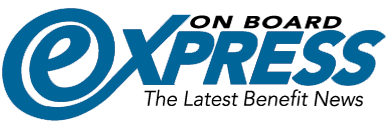
Vol. XIX, Issue 16
April 3, 2020
CARES Act Update—April 3, 2020
On April 2, 2020, the Small Business Administration (SBA) issued an interim final rule (Rule) implementing the Paycheck Protection Program (PPP) loans the Coronavirus Aid, Relief, and Economic Security Act (CARES Act), effective immediately. The CARES Act temporarily permits SBA to guarantee 100 percent of loans under PPP. The CARES Act provides for forgiveness of up to the full principal amount of qualifying loans guaranteed under the PPP, under certain conditions. The Rule is available here.
In the Rule, the SBA clearly states that any 501(c)(3) nonprofit organization is eligible. Churches (houses of worship) and conventions or associations of churches (like annual conferences) are tax-exempt organizations as described in Internal Revenue Code (IRC) Section 501(c)(3), so should be eligible. The Rule adopts the broad text of the CARES Act regarding which organizations are eligible. Nevertheless, the program is administered by local bank lenders, and some banks may not have a good understanding of nonprofit and church organizations, or may restrict loans to its existing borrowers and clients, or other types of business for its own reasons.
Below are some key takeaways from the Rule in Q&A form:
Question: Am I eligible?
Answer: You are eligible for a PPP loan if you have 500 or fewer employees whose principal place of residence is in the United States, or are a business that operates in a certain industry and meet the applicable SBA employee-based size standards for that industry, and:
- i. You are:
- A. A small business concern as defined in section 3 of the Small Business Act, and subject to SBA’s affiliation rules … unless specifically waived in the Act;
- B. A tax-exempt nonprofit organization described in section 501(c)(3) of the Internal Revenue Code (IRC), a tax-exempt veterans organization described in §501(c)(19) of the IRC, Tribal business concern described in §31(b)(2)(C) of the Small Business Act, or any other business; and
- ii. You were in operation on February 15, 2020 and either had employees for whom you paid salaries and payroll taxes or paid independent contractors, as reported on a Form 1099-MISC.
Note: Churches (and annual conferences) are tax-exempt nonprofit organizations described in IRC §501(c)(3).
Question: How do I determine if I am ineligible?
Answer: Businesses that are not eligible for PPP loans are identified in [regulations] and described further in SBA's Standard Operating Procedure (SOP) … except that nonprofit organizations authorized under the CARES Act are eligible.
Note: This clarification should reinforce for borrowers and lenders that nonprofit organizations are eligible.
Question: Are there concerns with PPP loan applications regarding a daycare or soup kitchen ministry associated with a church, or regarding camps or district offices associated with an annual conference?
Answer: The SBA has affiliation rules for businesses based on common ownership or control. These rules are not easy to apply to churches and other nonprofits. The Rule states, "SBA intends to promptly issue additional guidance with regard to the applicability of affiliation rules…to PPP loans."
Note: The Church Alliance has submitted a letter urging the SBA to adopt reasonable rules for determining affiliation of church organizations with one another.
Question: Are there concerns for churches in receiving funds from the government?
Answer: Some have expressed concerns that receiving a PPP would subject churches to greater governmental oversight. Organizations that receive federal funds, like grants, might be subject to certain nondiscrimination requirements that might conflict with religious beliefs, and additional financial and disclosure requirements. Notably, the SBA included the following in the Rule:
All loans guaranteed by the SBA pursuant to the CARES Act will be made consistent with constitutional, statutory, and regulatory protections for religious liberty, including the First Amendment to the Constitution, the Religious Freedom Restoration Act, and SBA regulation[s]…, which provides: "Nothing in SBA nondiscrimination regulations shall apply to a religious corporation, association, educational institution or society with respect to the membership or the employment of individuals of a particular religion to perform work connected with the carrying on by such corporation, association, educational institution or society of its religious activities." SBA intends to promptly issue additional guidance with regard to religious liberty protections under this program.
Note: It appears that the SBA intends to implement the program in a way that does not infringe religious liberty for religious organizations that receive PPP loans. There is still some uncertainty about whether receiving PPP loans, whether or not forgiven, would subject organizations to some of the financial reporting, disclosure, and audit requirements that typically accompanies the receipt of federal funds grants. The Church Alliance is seeking clarification of that question from the SBA.
Wespath continues to analyze the CARES Act and its potential impact on UMC annual conferences, local churches, and clergy/lay employees. If you have questions about the CARES Act, please send them to Tony Prestipino, Andy Hendren, Steve Clark or Jim O'Connell.
Additional resources are available on Wespath's COVID-19 webpage.
Copyright © Wespath Benefits and Investments,
a general agency of The United Methodist Church
Share your
suggestions and comments about On Board
Express
